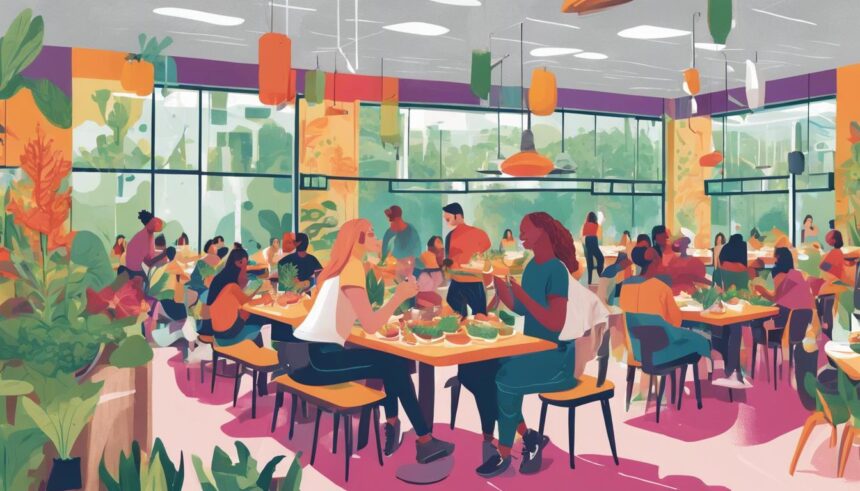Planet Eats is a new dining initiative by Chartwells at Western Washington University focusing on low-carbon, plant-forward meals aimed at reducing environmental impact and catering to the eco-conscious preferences of Generation Z.
In an innovative step towards sustainable dining, Chartwells Higher Education has launched Planet Eats℠, a pioneering climate-friendly and health-conscious dining concept, making its debut at Western Washington University. This new initiative aims to transform the way students think about and consume food on campus, aligning closely with the increasing demands of Generation Z for environmentally responsible choices.
Understanding the significance of sustainable dietary options, Chartwells has designed Planet Eats to focus on low-carbon, plant-forward meals that contribute positively to the planet. As a leader in contract food service management, Chartwells services over 300 campuses across the United States, and this initiative continues their trajectory of leading innovative and sustainable food solutions in educational settings.
The core of Planet Eats revolves around educating diners about the environmental impacts of their food choices. According to recent surveys, 70% of Gen-Zers are attentive to the sustainability of their food and beverage consumption, an insight that Planet Eats directly addresses. The initiative seeks not only to provide meals that are better for the environment but also to showcase the beneficial impacts conscious eating habits can have on the planet.
Underpinning this initiative are several key features geared towards sustainability:
-
Climate labeling and waste tracking: This allows students to see the carbon footprint of their meals, addressing food-related emissions comprehensively.
-
Emphasis on local and seasonal ingredients: The menus are designed to reduce transportation emissions and support local agriculture, further decreasing the overall environmental impact.
-
Inclusive and diverse menu choices: Planet Eats features a variety of plant-based dishes that cater to different dietary needs, including allergen-free options. Some of the notable dishes include a spicy lentil and cauliflower scramble, vegan cinnamon French toast, a Nashville hot mushroom sandwich, and a vegan Roman pizza.
The introduction of Planet Eats is about more than just serving food; it’s about creating an educational platform. Monalisa Prasad, VP of Sustainability at Chartwells Higher Education, emphasized the dual benefits of the program, noting that it offers “healthy, sustainable, and inclusive food options” while enabling students to learn about their personal impact on global sustainability.
Students have expressed enthusiasm for the initiative. Joshua LaMorre, a student at Western Washington University, shared how Planet Eats enables him to make informed and environment-friendly choices, highlighting the program’s role in empowering students by enhancing their awareness about sustainable practices.
Chartwells is not new to innovation in food services. Recognized for their commitment to re-inventing on-campus dining, they have consistently invested in high-tech food-infused social spaces aimed at fostering relationships and interactions among students. Planet Eats is a further extension of their dedication to creating joy in campus dining while preparing students for successful, mindful living.
As more institutions look towards sustainable models of operation, programs like Planet Eats could set new standards for how educational facilities cater to the eco-conscious preferences of younger generations, effectively altering the landscape of campus dining across the globe.





